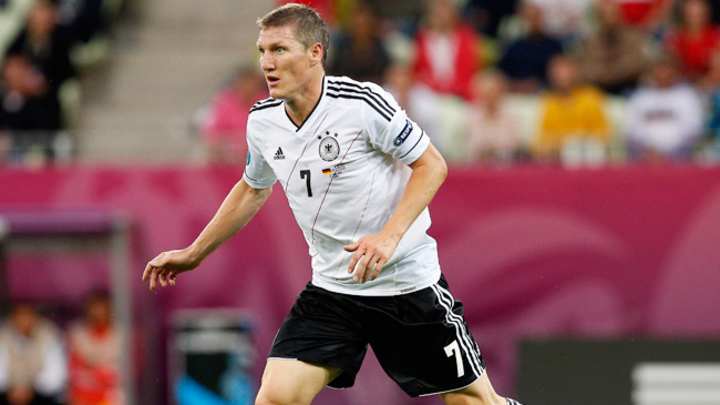France vs. Germany: Die Mannschaft's winners and losers


The 2-1 in the Stade de France on Wednesday night was Germany's first win in France since 1935. "Victory party in Paris, finally great Jogi football again," cheered tabloid Bild. But despite the historic success, described as a "German lesson" by L'Équipe magazine the next morning, not everyone in the DFB (German Football Association) camp had an enjoyable evening. There were some losers, as well as plenty of winners. Here's the breakdown:
Winners
Thomas Müller: The Bayern Munich midfielder scored his first goal since November 2011 for Germany (1-1, 51') and gave Patrice Evra a torrid time throughout. The 23-year-old's position in the starting line up seemed in danger after inconsistent showings at Euro 2012 but Müller, the king of improvisation has once again made himself irreplaceable by way of hard work and sheer ingenuity. He's become the team's most eloquent and cool-headed spokesman, too. "This was only a friendly," he insisted, "let's not go overboard. We didn't win the World Cup." At the same time, he took an obvious delight in reminding the media that the successful comeback from the 1-0 deficit at halftime showed that his side wasn't lacking in winning mentality, as was often suggested since the Italy defeat in Poland.
Ilkay Gündogan: "A better Schweinsteiger," wrote Die Zeit. That's putting it too drastically perhaps. But there is no doubt that the Borussia Dortmund midfielder managed to turn in a breakthrough performance as far as his appearances in the national team are concerned. In only his second start under Löw, the 22-year-old was hugely influential in midfield, quietly dictating the pace of the play and playing a few killer balls. After this strong showing, Gündogan has graduated from "only in an emergency" squad member to a serious contender for a regular starting berth.
Sami Khedira: The Real Madrid star also shone in central midfield. Khedira didn't get everything right -- at times, he left the back four too exposed -- but his dynamism brought a new dimension to Germany's passing game. Khedira's runs from deep sliced the French defence open again and again, and he created an incredible amount of space for his teammates. A fantastic goal to secure Germany's win provided the icing on the cake, strong suspicions of offside notwithstanding.
René Adler: More than two years after his last outing in the Germany goal, the 28-year-old came back with a star performance. The HSV stopper made a few key saves to keep the visitors in the game when France were creating chances. Adler was so good that the German media can soon play its favorite game again: stirring up a debate about who should wear the gloves in the national team. Adler dismissed having ambitions to usurp Manuel Neuer -- Neuer benefitted from Adler's injury to the run-up to the 2012 World Cup -- but he's put himself in genuine contention again, should Neuer falter.
Joachim Löw: It was only a friendly, of course. And it could have gone either way - France had plenty of opportunities to get a very different result. A last-minute equalizer, for example, would have led to a familiar debate about Germany's defensive frailty and lack of nerve. As it was though, the result spoke loud enough to silence the doubters, at least for another few weeks. Löw has a bit more peace and quiet to work on the details.
Losers
Lukas Podolski: He had his moments in Paris but failed to deliver an end product. This was a big chance for the Arsenal player: Dortmund's Marco Reus and Mario Götze, his two biggest rivals on the left of Löw's 4-2-3-1 starting lineup, were both not available. Podolski couldn't make the most of the opportunity, however. He had his moments in Paris but failed to deliver an end product. His 68th minute replacement, André Schürrle, wasn't faring much better. But this is scant consolation. Podolski will have to get used to life as a sub for Germany, as his competitors are simply stronger.
Bastian Schweinsteiger: The 28-year-old Bayern Munich midfielder missed yet another friendly with injury. "Schweini" felt secure enough in his position as Germany's linchpin to pull out of the match with a slight knock but this turned out to be one game he shouldn't have missed. Both Gündogan and Khedira have put real pressure on his place with their excellent showings. His steady service for the national team in the past will make it difficult -- as well as politically sensitive -- for Löw to drop him, but he has to look over his shoulder now more than ever. He will have to work hard to keep his prior status as Löw's first name on the team sheet.
Mario Gomez: Gomez had his first competitive game in 2013, since Mario Mandzukic is keeping him out at the club level. The Bayern Munich forward will be forgiven for looking a little short on match sharpness as a consequence. At the same time, the 28-year-old wasn't able to stake a stronger claim on Germany's No. 9 shirt in the absence of the injured Miroslav Klose; in an open game, Germany created plenty of chances with him being on the periphery of proceedings. Löw's second-half switch to a striker-less system also doesn't bode well for his long-term future.
Stefan Kiessling: The Leverkusen striker will have felt doubly disheartened. First of all, he wasn't even in the squad after Löw overlooked him yet again. But worse, Löw's flirtations with a Spanish "false nine" formation after the break suggest that Kiessling might not be needed at all at the World Cup.
